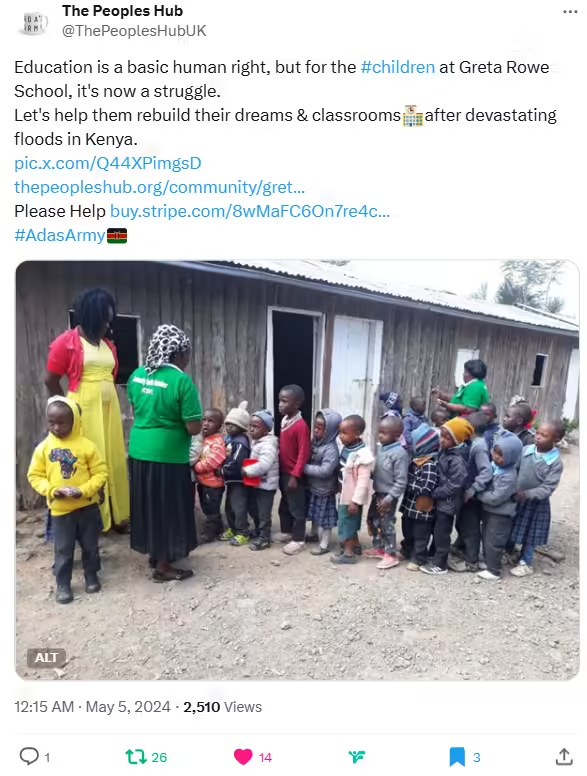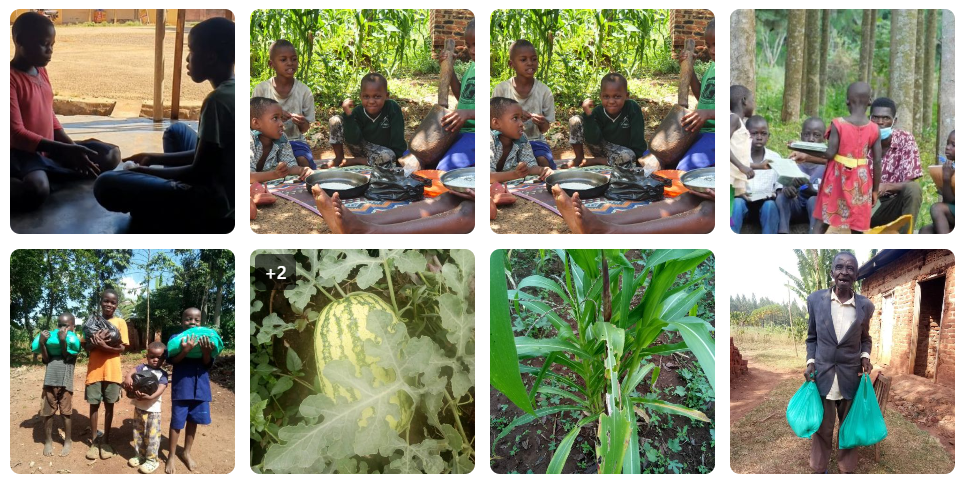Imagine a world where schools transcend textbooks, transforming classrooms into vibrant laboratories of life. This vision is becoming reality through community school farming. A movement that's taking root across the world. Empowering future generations and fostering a deeper connection between people and earth.
At the forefront of this movement lie projects like the Bamunanika Projects in Mityana, Uganda. Championed by Kimbowa Ivan and The People's Hub. Here, orphans and the wider community are not just learning, they're thriving. Their school farm provides not only educational opportunities but also a source of nutritious food. Also self-sufficiency, and a sense of belonging. Delve deeper into their inspiring journey through articles like "Seeds of Hope: A Ugandan Journey". See the project's remarkable progress.
The Bamunanika story extends beyond vegetables. Their Bamunanika Coffee Project cultivates "Seeds of Hope" by empowering local farmers and promoting sustainable coffee production. This commitment to ethical and sustainable practices exemplifies the interconnectedness of community school farming. Providing a brighter future for orphans and their communities.
This approach extends to other countries in Africa. Initiatives like the Greta Rowe School in Kenya incorporate a strong environmental focus into their curriculum. Here too, students are likely cultivating not just knowledge, but a deep appreciation for the natural world. Potentially including a school farm program that fosters a sense of stability and purpose.

The People's Hub's network extends beyond the projects we've highlighted so far. One such inspiring example is Muwanika Fahad from Our Social Uganda, located in Iganga, Busoga sub-region. Muwanika Fahad's story exemplifies the transformative power of community and education. Nearly three years ago, he benefitted from The People's Hub's education, water, and agriculture (food) program. Today, Muwanika Fahad is not just thriving, he's giving back! His dedication and hard work are evident in his flourishing tomato farm. A testament to the lasting impact of these initiatives. Muwanika Fahad's story serves as a beacon of hope. Inspiring others and showcasing the potential within each individual to become a leader and changemaker in their community.

While Africa offers powerful examples, community school farming is not limited to one continent. In the United States, organizations like the National Farm to School Network connect schools with local farms. Promoting healthy eating habits and environmental awareness among students. This fosters a deeper understanding of the food system and empowers future generations to make informed choices.
Across the Atlantic, countries like Spain and France are also embracing this movement. In Spain, school gardens are becoming increasingly popular. Offering students practical experience in food production and fostering a connection to nature. Similarly, France has seen a rise in initiatives that integrate farm-to-school programs and educational gardens into the curriculum.
The impact of community school farming extends far beyond the fields it cultivates. It paves the way for a more sustainable future. As shown by the link between the Bamunanika Projects and regenerative farming practices. Organic cotton production, for instance, reduces reliance on harmful chemicals and promotes biodiversity. This movement is further explored in our initiative "Regenerative Farming and Fashion for Children: Seed to Stitch".
The power of community school farming goes beyond the harvest. It fosters a sense of connection. As seen in The People's Hub's very mission, "When Love Meets Hope: Great Things Happen"). By bringing together educators, students, parents, and community members. These projects create a collaborative environment where everyone has a role to play. This not only strengthens the social fabric of the community but also equips students with valuable life skills like responsibility. Also problem-solving, and resilience.
Community school farming isn't just about growing vegetables; it's about cultivating a love for learning. Studies have shown that hands-on experiences in gardens and farms can improve academic performance in science, math, and language arts. Students engaged in these programs demonstrate a deeper understanding of scientific concepts like plant growth cycles and ecosystems. Additionally, the responsibility of caring for plants fosters accountability and a sense of ownership over the learning process.
Fresh, locally-grown produce becomes more accessible through school farm initiatives. This not only improves the quality of school meals but also encourages students to develop healthy eating habits. Hopefully that can last a lifetime. Exposure to a wider variety of fruits and vegetables can combat childhood obesity and promote overall well-being.
Community school farming equips students with the knowledge and skills necessary to make informed decisions. About their food and the environment. They gain a deeper appreciation for the complex journey food takes from farm to table. Fostering a respect for farmers and the agricultural sector. Additionally, these projects can nurture a sense of environmental stewardship. Encouraging students to become responsible citizens who advocate for ethical sustainable practices.
Bringing together diverse populations and fostering cross-cultural understanding. Students from different backgrounds can work side-by-side, learning from each other and celebrating their shared humanity. This collaborative spirit extends beyond the schoolyard. As students can become ambassadors for healthy eating and environmental awareness within their local communities.
The transformative power of community school farming is particularly evident in its impact on orphans and vulnerable communities. Organizations like The People's Hub, through projects like the Bamunanika Initiative, provide a safe haven for orphans. Offering not just education but also a sense of belonging and purpose. These school farms become more than just educational tools. They become sources of nutritious food, fostering self-sufficiency and empowering these young people to build a brighter future.
The impact of community school farming extends far beyond the immediate benefits it offers students and communities. By promoting sustainable agricultural practices like organic farming and regenerative agriculture, these projects contribute to a healthier planet. Reduced reliance on harmful chemicals protects soil health and biodiversity, paving the way for a more sustainable food system. Furthermore, community school farming can empower local communities to become more self-sufficient. Lessening dependence on external food sources and promoting food security.
Community school farming is more than just a way to grow food. It's a movement with the power to transform the world. Especially for orphans seeking a safe and nurturing environment and for those striving to build a more equitable future. Inspired by the stories we've shared? Here are ways you can get involved:
Community school farming is not a silver bullet. However, it represents a powerful seed of change with the potential to blossom into a global movement. For a brighter future. To fully unlock its potential, collaboration and knowledge-sharing are paramount. Here's how we can cultivate a fertile ground for this movement to flourish:
Community school farming is a powerful movement with the potential to transform education. Empower communities, and cultivate a more ethical sustainable future. Fostering collaboration. Through knowledge sharing and innovation. We can create a global network of hope where these initiatives can flourish and benefit generations to come. In this shared harvest, everyone has a role to play. Educators, farmers, community members, policymakers, and individuals making conscious choices about the food they eat and the clothes they wear. Let us join hands. Plant seeds of hope. Cultivate a world where education nourishes minds, communities thrive, and earth flourishes for all. A Community In Action!